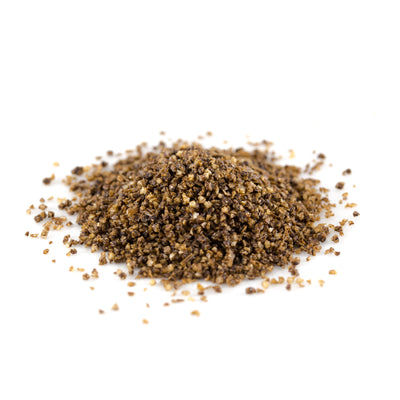What is a Varietal Olive Oil?
It comes as no surprise that after thousands of years of cultivation, the diversity of olive crops has dramatically increased. In fact, there are over 700 recognized types of olives being grown around the world today! So how do you know what kind of olives provided the extra virgin olive oil in your bottle, and what impact do they have on the taste and healthfulness of the oil? To answer that, let's look at what goes into a varietal olive oil.
Cultivars and Varietals
Cultivars are specific olive types such as Kalamata, Hojiblanca, Arbequina, and Picual. Olive cultivars can differ in colour, size, oil content, and of course, flavour. When these olives are harvested from the same grove at the same time and crushed by themselves, a monovarietal oil is produced, often called a varietal for short. In other words, a varietal olive oil is created from a specific single variety of olives grown together, resulting in a distinctly unique olive oil.
Picual vs Picual
Variations, especially seasonal, also occur within a given varietal due to differing growing, harvesting, and processing conditions. For example, all Picual varietals are fruity by nature, but one grown in Spain under certain climactic conditions will vary from one grown in Chile under a different set of conditions. Notably, this is one commonality between olive oil and wine - just like no two Chardonnays are exactly alike, the same applies to Picual and other extra virgin olive oil varietals.

What About Evoolution?
At Evoolution, our extra virgin olive oils are monovarietals or prized blends of two cultivars that grow together, such as Fraintoio and Leccino olives. This creates a healthy range of high quality EVOO for you to choose from with uniquely varied flavour profiles. Each varietal we carry exhibits distinct flavour and chemistry characteristics that distinguish the character of one varietal from the next. For example, our Picual varietals are typically fruity and robust with higher polyphenol counts, whereas our Arbequina varietals are typically creamier, delicate and smooth.
What About Grocery Store Olive Oil?
For economical or other reasons, many grocery store olive oils are generic blends made from different types of olives from different places. Often they are labeled as "product of Italy," "imported from Italy," "bottled in Italy," or some variation of these phrases to give the impression of quality by association with Italy. A careful check, however, often reveals that many of these olive oils may only contain some or no Italian olive oil and are actually blends of olive oils from different countries based on where olive oil production is cheapest, maintaining the same flavour profile year-over-year, or other considerations.
Blending and Olive Oil Fraud
Blending cheaper oils with extra virgin olive oil is a practice employed by fraudsters to pass off adulterated olive oil as "extra virgin." Sometimes lower grade olive oil is blended with smaller amounts of extra virgin olive oil and passed off as "extra virgin." In more sinister cases, extra virgin olive oil is mixed with other cheaper seed or nut oils, such as canola or soybean oil, and then artificially coloured and flavoured to taste like extra virgin olive oil.
How Do I Select the Right Varietal for Me?
Harvest freshness, storage, and other factors affecting extra virgin olive oil quality are important factors we focus on to bring you the highest quality extra virgin olive oils in the world. Another important distinction we focus on is flavour. Purchasing varietal extra virgin olive oils is like purchasing your favourite wines. You select a wine because it carries an appealing flavour profile. The same consideration applies to selecting a varietal extra virgin olive oil. There are both subtle and profound differences between varietals. In the example noted above, you may prefer the smooth flavour of a creamy Arbequina for drizzling on your leafy green salads. Or, if you're making a pasta dish, you may want the robust, green, peppery character of a Picual to stand out. As you can see, your selection of a varietal will depend on both your personal preference and what you're using it on. To decide which you like best, check out our strippagio guide and start tasting!





So inspiring! I am more careful with the choice of my oils when I know this now.
Leave a comment